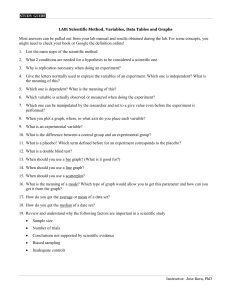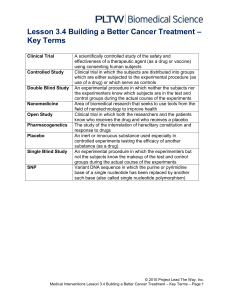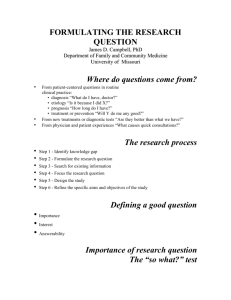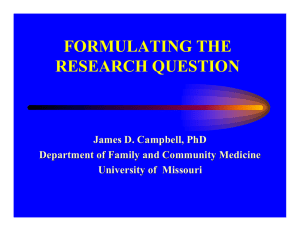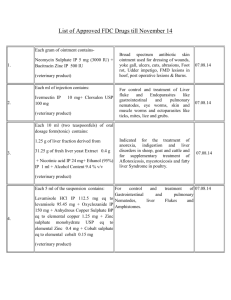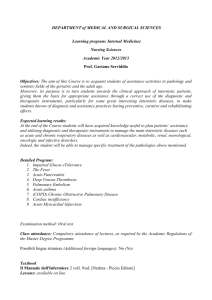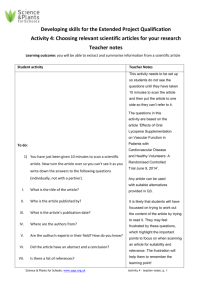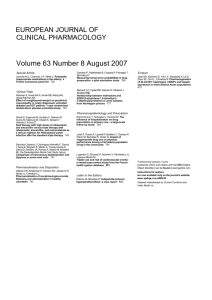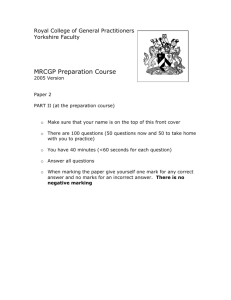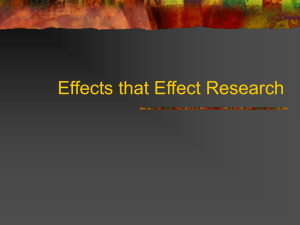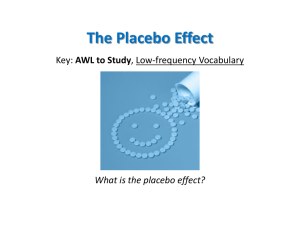THE ROYAL COLLEGE OF GENERAL PRACTITIONERS
advertisement
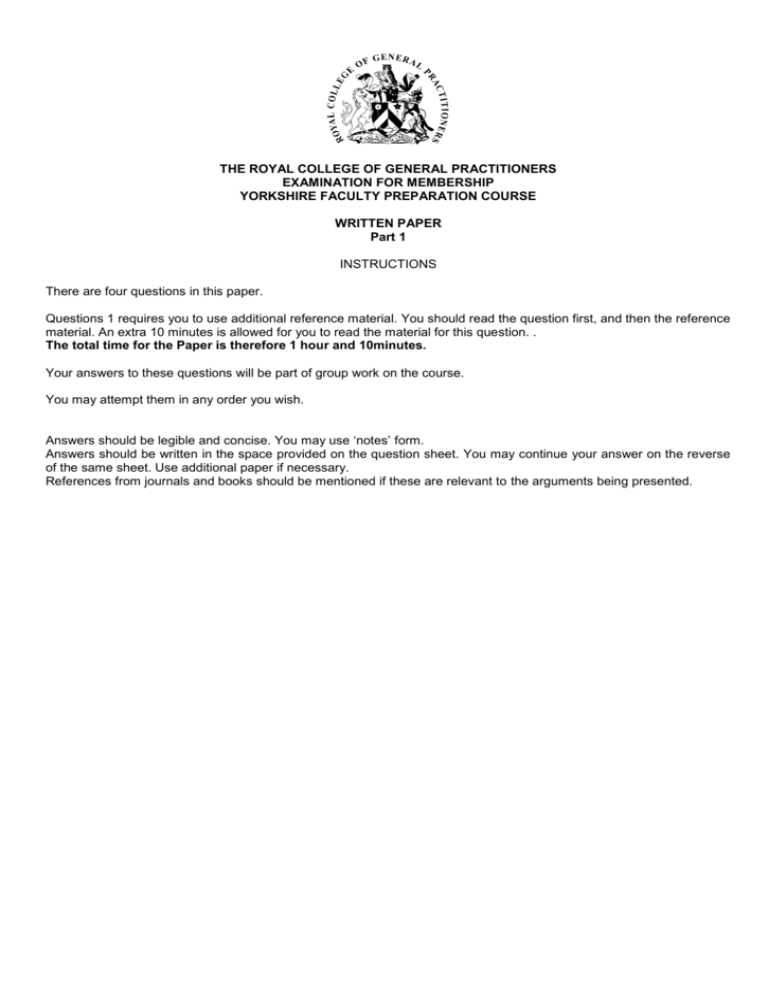
THE ROYAL COLLEGE OF GENERAL PRACTITIONERS EXAMINATION FOR MEMBERSHIP YORKSHIRE FACULTY PREPARATION COURSE WRITTEN PAPER Part 1 INSTRUCTIONS There are four questions in this paper. Questions 1 requires you to use additional reference material. You should read the question first, and then the reference material. An extra 10 minutes is allowed for you to read the material for this question. . The total time for the Paper is therefore 1 hour and 10minutes. Your answers to these questions will be part of group work on the course. You may attempt them in any order you wish. Answers should be legible and concise. You may use ‘notes’ form. Answers should be written in the space provided on the question sheet. You may continue your answer on the reverse of the same sheet. Use additional paper if necessary. References from journals and books should be mentioned if these are relevant to the arguments being presented. 1. Your practice is planning a policy on prescribing antibiotics for acute otitis media in young children. You wish this process to be evidence based. 1a) Outline how you would gather your evidence. Please refer to Reference Material A (part of an abstract from a paper entitled ‘Primary care based randomised, double blind trial of amoxicillin versus placebo for acute otitis media in children under 2 years’) and answer the questions listed below. 1b) Comment on the strengths and weaknesses of the methodology of the study as presented in the abstract. 1c) What further information about the methodology would you wish to obtain from the paper in its entirety? Reference Material A Primary care based randomised, double blind trial of amoxicillin versus placebo for acute odds media in children aged under 2 years Roger A MJ Damoiseaux, Frank A M van Balen, Amo W Hoes, TheoJ M Verheij, Ruut A de Melker Abstract Objective To determine the effect of antibiotic treatment for acute otitis media in children between 6 months and 2 years of age. Design Practice based, double blind, randomised, placebo controlled trial. Setting 53 general practices in the Netherlands. Subjects 240 children aged 6 months to 2 years with the diagnosis of acute otitis media. Intervention Amoxicillin 40 mg/kg/day in three doses. Main outcome measures Persistent symptoms at day four and duration of fever and pain or crying, or both. Otoscopy at days four and 11, tympanometry at six weeks, and use of analgesic. Results Persistent symptoms at day four were less common in the amoxicillin group (risk difference 13%; 95% confidence interval 1% to 25%). The median duration of fever was two days in the amoxicillin group versus three in the placebo group (P = 0.004). No significant difference was observed in duration of pain or crying, but analgesic consumption was higher in the placebo group during the first 10 days (4.1 v 2.3 doses, P= 0.004). In addition, no otoscopic differences were observed at days four and 11, and tympanometric findings at six weeks were similar in both groups. 2. For each of the following scenarios involving elderly patients, comment on the use of medication and give evidence to support your views. 2a) An asymptomatic 78-year-old man with repeated blood pressure readings of 186/88. 2b) A 70-year-old woman found to have osteoporosis, having now recovered from a recent fractured thoracic vertebra following a minor fall. 2c) A 76-year-old man with persistent atrial fibrillation. 2d) A 68-year-old woman with recently diagnosed Alzheimer’s disease. 3. “The NHS needs doctors who: are clinically up to date practise evidence based medicine treat patients as partners work as members of a team understand the wider issues” What challenges are there in meeting each of these expectations? 4. Christine Menzies, a 26-year-old nurse, consults you with troublesome eczema of her hands. How would you manage her?
